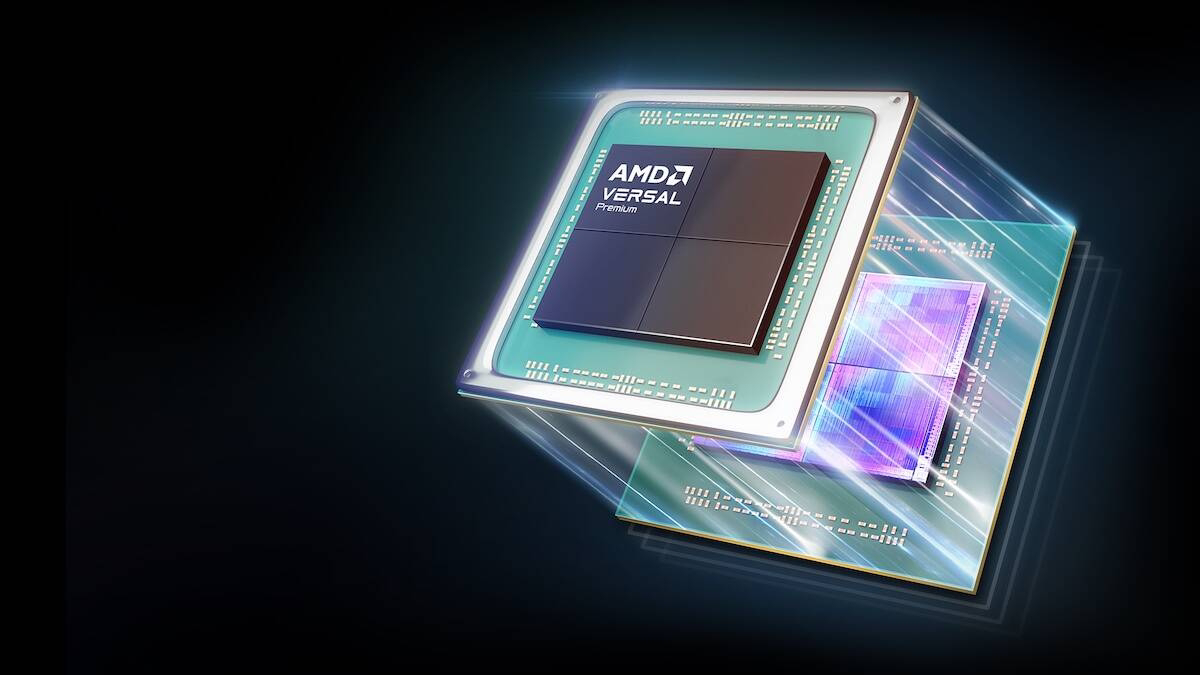AMD Unleashes the Power of Versal Premium VP1902 SoC: Unveiling a Tech Marvel with All-Encompassing Intricacies
AMD has recently made a groundbreaking announcement regarding its latest technological marvel—the AMD Versal Premium VP1902 adaptive system-on-chip (SoC). This cutting-edge SoC has been proclaimed as the largest adaptive SoC in the world, showcasing AMD's commitment to pushing the boundaries of semiconductor design. With its chiplet-based architecture, the VP1902 adaptive SoC aims to streamline the verification process for increasingly intricate semiconductor designs, particularly in the realm of application-specific integrated circuits (ASICs) and SoC designs.
The advancements brought forth by the new SoC are truly remarkable. AMD's VP1902 offers twice the capacity of its previous generation, empowering designers to embrace innovation and confidently validate ASICs and SoC designs. This accelerated validation process is crucial for expediting the introduction of next-generation technologies to the market, enabling companies to remain at the forefront of progress.
A notable feature of the VP1902 adaptive SoC is its FPGA-based emulation and prototyping capability, which delivers unparalleled performance. This heightened performance facilitates faster silicon verification, allowing developers to shift left in the design cycle. By initiating software development well before silicon tape-out, developers can save valuable time and resources, ultimately expediting the overall product development process.
Kirk Saban, the corporate vice president of Product, Software, & Solutions Marketing in AMD's Adaptive and Embedded Computing Group, highlighted the company's commitment to empowering its customers through foundational compute technology. He emphasized the importance of providing the highest capacity and performance in the realms of emulation and prototyping, and how AMD's VP1902 adaptive SoC fulfills these requirements. Saban expressed his confidence that chip designers can leverage the VP1902 SoC to emulate and prototype next-generation products, thereby accelerating innovations in fields such as artificial intelligence (AI), autonomous vehicles, Industry 5.0, and other emerging technologies.
The VP1902 SoC boasts an impressive 18.5 million logic cells, showcasing a 2X2 increase in programmable logic density compared to the previous generation Virtex UltraScale+ VU19P FPGA. Additionally, it offers a 2X4 aggregate I/O bandwidth, further enhancing its capabilities.
One of the standout features of the VP1902 adaptive SoC is its improved debugging capabilities. By utilizing the Versal architecture, including the programmable network-on-chip, the SoC enables up to 8X5 faster debugging than its predecessor, the VU19P FPGA. This significant improvement in debugging speed allows developers to detect and rectify issues more efficiently, saving valuable time during the development process.
To provide customers with a comprehensive development platform, AMD offers the Vivado ML design suite for use with the VP1902 adaptive SoC. This powerful suite equips developers with the necessary tools to swiftly design, debug, and validate next-generation applications and technologies, ultimately accelerating time to market. Notable features of the suite include automated design closure assistance, interactive design tuning, remote multi-user real-time debugging, and enhanced back-end compilation. These features work harmoniously to empower end users to iterate IC designs more rapidly, further enhancing the overall development process.
The AMD Versal Premium VP1902 adaptive SoC is set to begin sampling in the third quarter, granting early access to selected customers. The production phase is expected to commence in the first half of 2024, paving the way for a new era of technological advancements and groundbreaking innovations. AMD's VP1902 SoC represents a significant leap forward in the field of semiconductor design, offering unparalleled performance and efficiency to revolutionize various industries and shape the future of technology.









No comments
Thanks For Visiting